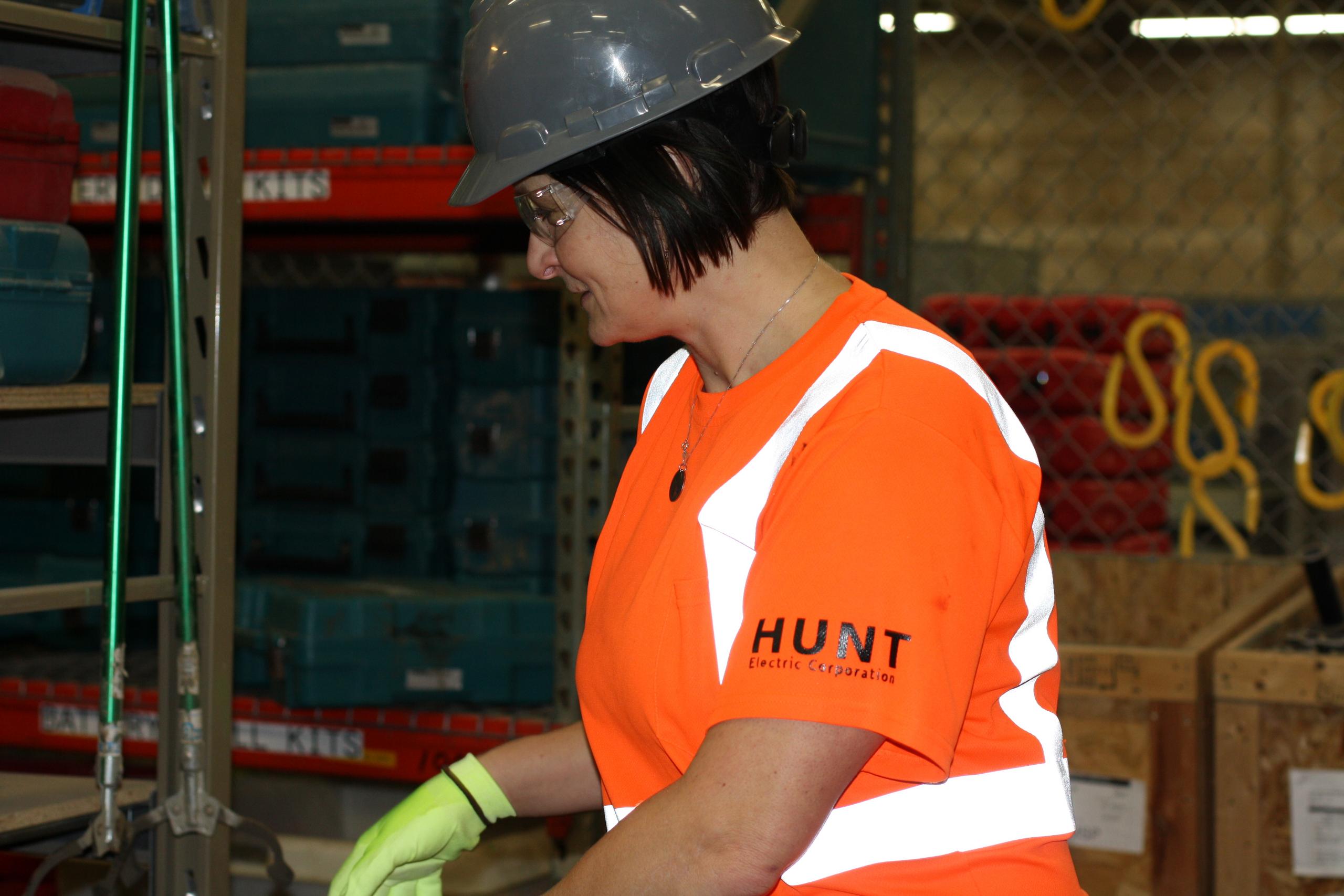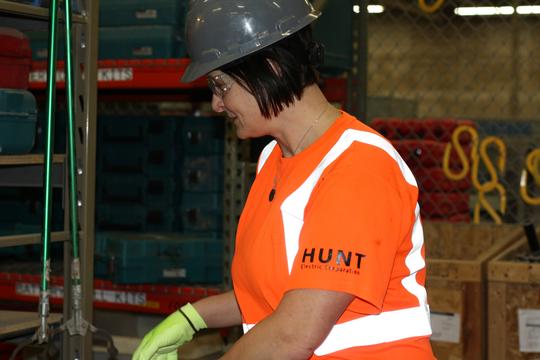
Women in Construction: Trudy Fransen
“You might be the only female on a job site, underestimated, and generalized. I’ve always said I had to be faster, smarter, and emotionally tougher to be equal to my male counterparts. One thing that usually eliminates these issues is hard work. If hard work doesn’t solve them, move on and find a place where your employer and coworkers are positive and allow you to be “other” but not let it define you.”

This week, as part of Women in Construction Week, we are highlighting women as a viable component of the construction industry. WIC Week also provides an occasion to raise awareness of the opportunities available for women in the construction industry and to emphasize the growing role of women in the industry.
TRUDY FRANSEN
General Foreman
Years at Hunt: 15
We asked General Foreman Trudy Fransen what advice she would give to the next generation of female leaders. She had a hard time answering the question. She’s held many jobs, both “traditional” and “non-traditional” from a Nurses Aid, Postal Carrier, Waitress, to paving and plowing city streets. These prior opportunities have given her knowledge of both types of employment. With this is mind, several hours of pondering, and several post-it notes in the trash, the short version of her advice is “Understand what being “other” means and play that to your strengths.”
Trudy goes on to say: The definition of a non-traditional career is working in a field or pursuing a degree program in which the total population is comprised of 25% or less of one gender. According to OSHA, women make up 9.1% of the construction workforce. 9.1% = other. In construction terms, not being a white male is “other.” You might be the only female on a job site, underestimated, and generalized. You may also be thought of as a threat, intimidating, and unapproachable. I’ve always said I had to be faster, smarter, and emotionally tougher to be equal to my male counterparts. One thing that usually eliminates these issues is hard work. If hard work doesn’t solve them, move on and find a place where your employer and coworkers are positive and allow you to be “other” but not let it define you.
Every person has different strengths and weaknesses. The most common weakness for females in construction is physical limitations. My advice is to find alternative ways or to be honest and forward with your limitations, and bring other skills to the table. Maybe you are a great listener, patient, detailed, or organized. Or maybe you are focused and driven. Your strengths are what will set you apart from your peers. Find them, and make them work for you.